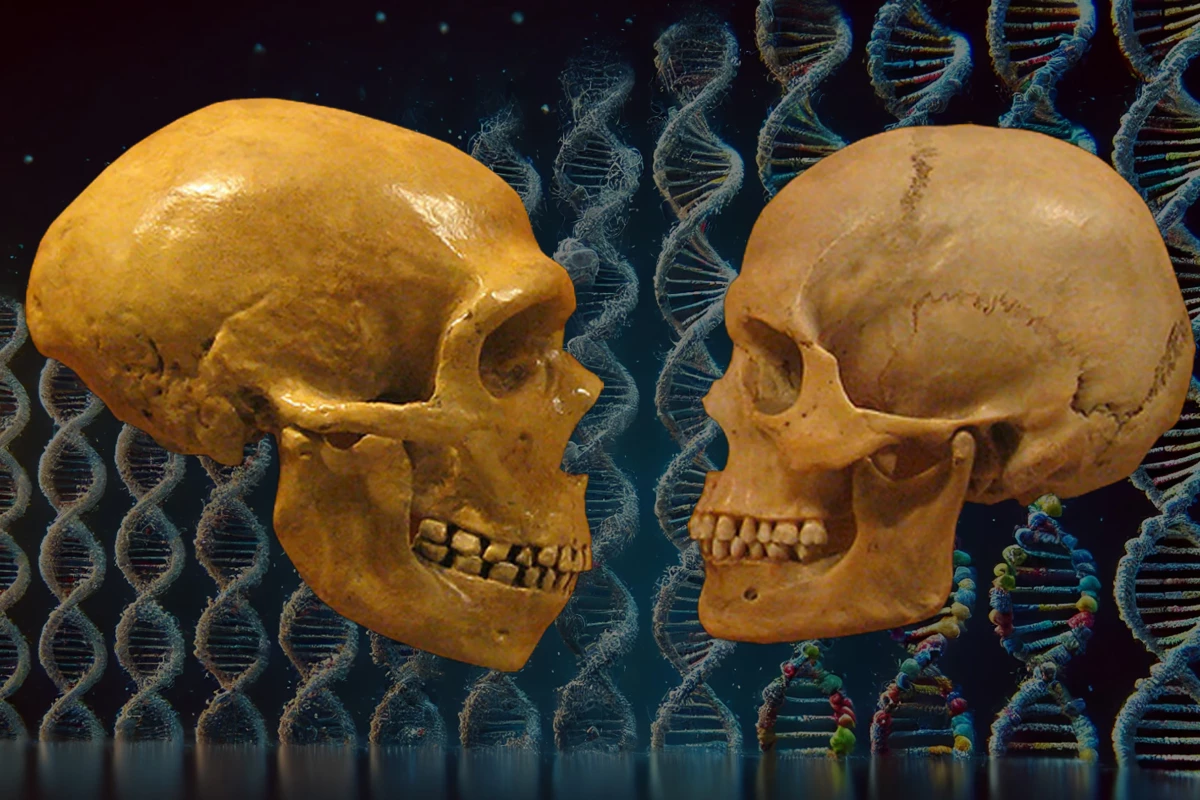We know that present-day European and Asian-derived humans have inherited between 1.5% and 4% of Neanderthal DNA, but how does that seemingly small amount of ancient genetic material impact modern physical and mental health?
A new study by researchers from Clemson and Loyola Universities, located in South Carolina and New Orleans, respectively, examined the genetic traits modern humans inherited from Neanderthals and, for the first time, found an association with autism.
“This is the first evidence that I am aware of actually showing that Neanderthal DNA is associated with autism,” said Alex Feltus, a professor at Clemson’s Department of Genetics and Biochemistry.
Neanderthals (Homo neanderthalensis) are a distinct species and not the direct ancestors of modern humans (Homo sapiens). However, genome analysis has shown that they interbred, albeit on a limited scale. The small percentage of Neanderthal DNA found in Eurasian populations suggests that the two species bred after modern humans left Africa but before they spread to Asia and Europe. Previous research has associated this genetic legacy with neurological, psychiatric, immune system and skin conditions.
For the present study, the researchers obtained data from publicly available databases to look at whether Neanderthal DNA was enriched in autistic people and their unaffected siblings compared to ethnically matched controls. They looked at single nucleotide polymorphisms or SNPs (pronounced “snips”), the most common type of genetic variation among people. Each SNP represents a difference in a single DNA building block, called a nucleotide. When SNPs occur within a gene or in a regulatory region near a gene, they may play a role in disease by affecting its function.
The researchers’ analyses identified 25 SNPs linked to brain development that were significantly enriched – that is, overrepresented – in people with autism. However, these Neanderthal-derived variations will not always result in autism, the researchers said. Instead, it’s about susceptibility to the condition.
“The hypothesis is no, ‘Did Neanderthals give us autism?’” Feltus said. “It’s that Neanderthals gave us some of the gene tweaks that give a higher susceptibility for autism. Autism is a complex trait. It is controlled by many, many genes. A big part of what we do in my lab is try to understand the level of complexity. Of the 60,000 genes in the human genome, how many genes are at play when you’re developing autism or cancer or any other complex trait? We embrace complexity. We don’t try to erase complexity.”
The researchers hope that their study will lead to further research into the ongoing influence of ancient, Neanderthal-derived genes on modern brain development, intelligence and overall human health, including gaining more insights into the complexities of autism.
The study was published in the Nature journal Molecular Psychiatry.
Source: Clemson University





